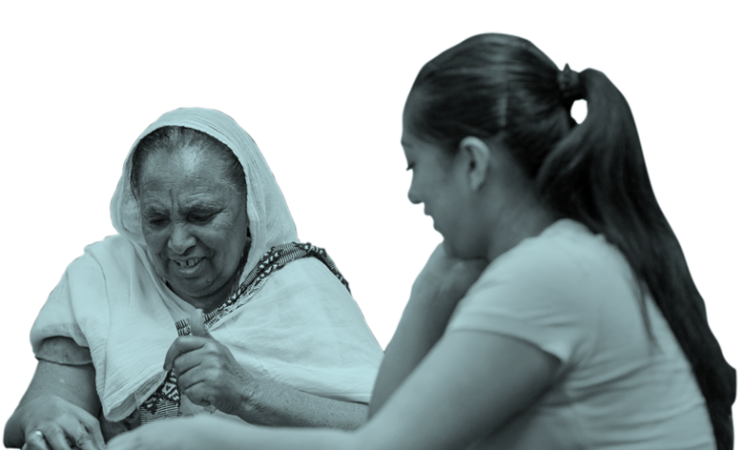A Simple Numeracy Routine: I have, you need
“I have, you need” is a simple, no-prep numeracy routine that helps learners build their number sense around number partners. Number partners are pairs of numbers that combine to make 10, 100 or 1000. Examples of partners are 5 and 5, 3 and 7, and 8 and 2 to make 10. Lots of practice with these allows learners to build automaticity with the partners and helps them do calculations faster.
Here’s an example script to do this with your learners:
Teacher / volunteer: “Class, today we are going to practice making 100 with two numbers with an activity called “I have, you need.” For example, if I say, ‘I have 50, what do you need?’ you would say, ‘50’. Let’s try it. I have 40. What do you need?”
Class: “60!”
Teacher / volunteer: “You got it! This activity helps you get you faster with making number partners to generally make you faster with math. I have 33. What do you need?”
Class: “67!”
Here are a few ways to keep everyone engaged:
- Have learners give you a “thumbs up” when they have the answer in their head and then cue them to say the answer after most people have shown a thumbs up (as shown in the video linked below).
- Learners write the number partner on a dry erase board and show it to you.
- Learners work in pairs or groups of three to construct the number partner with base ten blocks.
- Once this becomes routine, let learners lead it in front of the class or have them play in small groups.
- In online classes, tell learners to wait to press enter after they have typed their answer in the chat box to give everyone time to think.
Remember that you can do this with 10, 100 or 1000. You can even use 1 to practice decimals and fractions. Try it as a quick warm up or transition activity.
Here is a video of a teacher doing this activity. It is with an elementary class, but it gives you a clear picture of how to execute it.
Thank you to Kathryne Chiqui of Minneapolis Adult Education for sharing this activity at Summer Institute 2024. For questions or comments about this Tutor Tip, contact Tutor Training Coordinator Meghan Boyle at [email protected].

